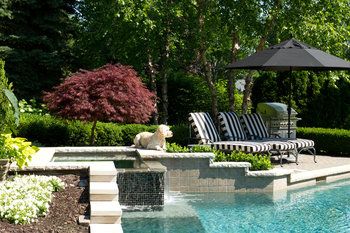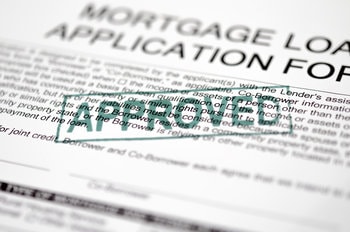 You need a place to live. And you want to be worth more down the road than you are today. So why not achieve both goals by purchasing a home? The facts point to a simple truth: Owning a home can help you build wealth, often better and faster than other methods.
You need a place to live. And you want to be worth more down the road than you are today. So why not achieve both goals by purchasing a home? The facts point to a simple truth: Owning a home can help you build wealth, often better and faster than other methods.
While it's not a foolproof investment, owning a home can pay off big time when you're older. You may be able to sell that home years later for much more than you paid for it. Or you can pass on the value your home has earned to your loved ones.
The key to building personal wealth through homeownership is simple: Purchase at a younger age, buy in the right location, and properly maintain that property, the experts agree.
Numbers that prove homeownership can build wealth
The median net worth of homeowners is 80 times larger than renters, according to new data from the US Census Bureau. That same report reveals that the biggest contributors to wealth are two main assets: home equity and retirement accounts, which represent nearly 63% of households' net worth.
Consider that the average homeowner has a household wealth of $231,420, per the Federal Reserve's Survey of Consumer Finances. Compare that to the average renter, who has a household wealth of merely $5,200, that same survey reveals.
Want more proof that owning a home can build wealth, especially faster than renting? Ponder the findings of a Joint Center for Housing Studies of Harvard University study. It suggests that households that entered or maintained homeownership benefited from household wealth increases over time.
Between 1999 and 2013, those who:
- remained homeowners had a median gain in wealth of $91,900
- went from renting to owning enjoyed a median gain of $85,400
- owned, rented, then owned anew had a median gain of $39,300
- and began as owners but later rented suffered a median wealth loss of $47,500
And recent Urban Institute research shows that buying younger builds a bigger nest egg. Those who bought their first home between 25 and 34 years old accrued the greatest housing wealth by their sixties.
Related: Understanding Home Equity
The benefits of home ownership
When you own a home and pay a mortgage, you're slowly building equity. Equity is the difference between your home's current market value and the balance you owe on your mortgage loan. The amount you pay monthly toward principal pads your equity.
Think about this, too: historically, real estate values almost always rise. This is called appreciation, and it's another way you could build wealth by owning a home.
Some people question the logic of buying vs. renting. But with renting, you don't earn any equity. The monthly rent you pay is pocketed by your landlord. Plus, in many markets, the amount you would pay monthly on a mortgage is less expensive than monthly rent for a comparable property.
That's why the decision to own a home or rent is easy for many people. If you're going to need a place to live, you might as well make your money work for you while enjoying that residence.
"When you buy a home, you have a place that's all yours. And the mortgage interest and property taxes you pay may also be tax-deductible. Your home may increase in value over time, as well, building equity in a great financial future for you and your family," says Sacha Ferrandi, founder/principal of Source Capital Funding.
What's more, renting often comes with more restrictions.
"You may not be allowed to have pets. Or you may be limited as to what you can do with the space, like paint the walls," Ferrandi notes. "Rent prices can continue to rise, too. But with a fixed-rate mortgage, the amount you pay in principal and interest will remain the same every month."
Related: Buying vs. Renting a Home
Invest -- and own -- with confidence
Lexington, Kentucky-based Realtor Ron Humes says real estate has historically been a very safe investment.
"As we know, they're not making any more real estate," explains Humes. "And there will always be cycles in the stock market, the economy, and the real estate market. However, relative to other investments, real estate is a stable means to build wealth and enjoy that investment in your everyday life."
Ralph DiBugnara, president of Home Qualified, seconds that sentiment.
"A home for most people will serve as a forced savings account," says DiBugnara. "A homeowner will pay into the value of their investment every month -- an investment that should be a long-term appreciating asset. That's what will grow long-term wealth."
Humes cautions that it's possible to lose money in a home or real estate investment. However, you can reduce your risk by researching carefully before buying.
"Be sure to spend adequate time assessing your needs and options with an experienced real estate agent. Don't pull the trigger on a purchase until you are certain," adds Humes. "And be sure to get a home inspection and appraisal to protect you in your decision."
Related: Can owning a home make you rich?



